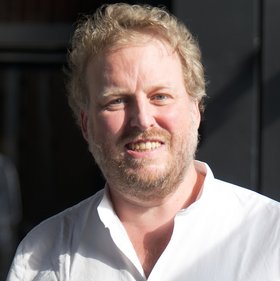EAC Mobile Labs
EAC Regional Network of Public Health Reference Laboratories for Communicable Diseases and Antimicrobial Resistance (Phase II)
Contact: Florian Gehre, Muna Affara, Andrea Molina
The East African Community (EAC) comprises of seven EAC Partner States, namely Tanzania, Uganda, Kenya, Rwanda, Burundi, South Sudan and more recently the Democratic Republic of Congo (DRC), with headquarters in Arusha, Tanzania. The purpose of the EAC Regional Network of Public Health Reference Laboratories for Communicable Diseases Project (Phase I) was to install nine mobile laboratories in order to strengthen the capacity in six of the EAC Partner States (DRC was not a member at the time of project implementation), to detect and respond to pathogens of biosafety level 3 and 4 (BSL3/4) nature.
Within the EAC region, Antimicrobial Resistance (AMR) remains a silent public health emergency, with very little information known on the spread of resistance. The Phase I Mobile Laboratories are not suitable for surveillance of AMR, as it is not possible to culture bacterial pathogens within the laboratory infrastructure. This gap in diagnostic capacity was a priority issue raised during discussions with the Ministries of Health (MoH) and National Public Health Laboratories (NPHLs), during phase I of the mobile laboratory project. As such, under the project Phase II, along with the EAC, the One Health Disease Control group are establishing mobile BSL3 container laboratories for bacterial identification and AMR surveillance within the EAC region. In addition, we are equipping the mobile container laboratories with whole genome sequencing capacity to support both AMR surveillance and disease outbreak response.
Overall, the EAC Regional Network of Public Health Reference Laboratories for Communicable Diseases aims to reduce the burden of communicable disease outbreaks to the population by strengthening the capacity of the EAC Partner States to respond to suspected outbreaks timely.
Objectives
- To strengthen sustainable structures at National Public Health Laboratories and capacities for the rapid identification of infectious disease outbreaks by establishing mobile diagnostic laboratories
- To strengthen capacities in EAC Partner States to enable antimicrobial resistance surveillance
- To enable EAC countries to mobilise from within country as rapid first line response
- To enable the identification of pathogens by establishing broader screening diagnostics capacity
- To enhance the capacity of the EAC Partner States to respond to suspected outbreaks timely
| Partners: | |
| Burundi | National Institute of Public Health, Ministry of Health and Fight Against AIDS, Bujumbura |
| Kenya | National Public Health Laboratories, Ministry of Health, Nairobi |
| Rwanda | National Reference Laboratory, Kigali |
| South Sudan | Public Health Laboratory and National Blood Transfusion Centre, Ministry of Health, Juba |
| Tanzania | East African Community (EAC) |
| Ministry of Health, Dodoma | |
| National Public Health Laboratory, Dar es Salaam | |
| Uganda | National Health Laboratory and Diagnostic Services (NHLDS), Ministry of Health, Kampala |
For further details please visit the EAC Mobile Labs Project website.
| Funding Period | 2017-ongoing |
| Funding Body | German Federal Ministry of Economic Cooperation and Development (BMZ) through the German Development Bank (KfW) |




![[Translate to English:] [Translate to English:] The Project is funded by the European Union](/fileadmin/media/Allgemeines_und_Platzhalter/Logo/EU.png)





